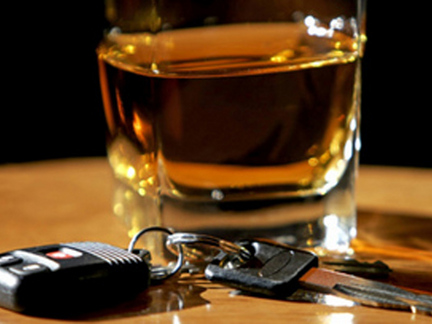Consequences of drunk driving last long time

 Drunk driving awareness month which just wrapped up in April, serves as a reminder that it’s never a good idea to drink and drive.
Drunk driving awareness month which just wrapped up in April, serves as a reminder that it’s never a good idea to drink and drive.
Those who do could face serious consequences, said Oklahoma City police officer Cody Koelsch.
Being arrested is one of those consequences.
More than 1.4 million arrests were made in 2009 of people driving under the influence of alcohol, according to the Center of Disease Control and Prevention website.
Nearly 11,000 people died in alcohol-related crashes. This accounts for nearly 32 percent of all traffic accidents in 2009, according to the CDC.
According to www.potsdam.com, a website written by David J. Hanson of State University of New York, drunk driving is dangerous, not only to the drivers themselves, but also to their passengers, pedestrians and drivers and passengers of other cars sharing the road.
Hanson said the risk of death for a highly intoxicated driver increases by 385 percent when compared to a driver with a zero blood-alcohol content.
In Oklahoma, there were 4,972 alcohol related accidents in 2009, according to Oklahoma Highway Safety Office statistics. Of these, 190 were fatal.
On a first offense, a person’s license is usually suspended for 90 days, dependent on how high the blood alcohol content is, Koelsch said.
If an offender tests above .15, he or she is also required to attend mandated Victim Impact classes, where they speak with victims of drunk driving and their families.
Second and third offenses are considered felonies and can lead to up to 10 years of prison time.
Licenses also are suspended for longer periods, up to three years for a third offense, he said.
Repeat offenders also are required to pay for the installation of an ignition interlock device, Koelsch said. This device tests a driver’s alcohol level before the vehicle will start.
Koelsch said even a trace detection of alcohol will disable the vehicle for six hours. The device costs about $500 to install.
If a driver refuses to take a test to determine blood alcohol level or tests above a .08, which is the legal standard at which impairment occurs, the license is automatically revoked and the driver is taken to jail.
A BAC between .05 and .07 is considered driving while impaired (DWI) and carries similar consequences, Koelsch said.
For drivers under 21, anyone with a BAC over .02 is charged with a DUI.
The Oklahoma City Police Department has the Alcohol Safety and Prevention program to help prevent drunk driving, Koelsch said.
“Thursday through Saturday night, off-duty police officers are brought in for aggressive DUI enforcement,” he said.
The program is funded by a federal grant and typically runs during the hours of 9 p.m. to 4 a.m.
“On-duty officers call the off-duty officers to complete the arrests. A DUI arrest typically takes about four hours,” Koelsch said.